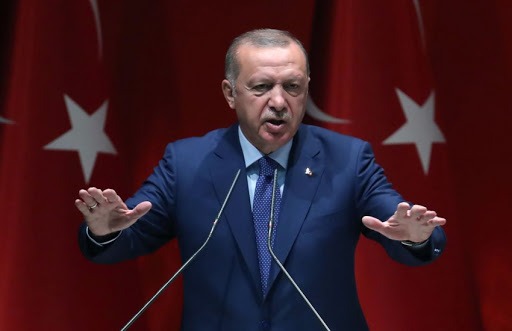Over a decade has passed since the time the policy to reduce Turkish tensions to zero was adopted and in that decade many steps were taken to achieve the goal. Internally, reforms were on the agenda with regard to the Alawites, the Kurdish issue, the border dwellers and reforms related to political and security structures. Externally, the principle was based on establishing balanced relations with neighbours and reducing Turkey’s foreign problems to zero which was based on Ahmet Davutoglu’s ideology. It was expected that by reducing internal and external tensions, Turkey’s costs would be reduced in various dimensions. However, this approach was not very successful in practice and in the early years of the implementation of Turkey’s de-escalation policy, Ankara was faced with peripheral challenges. Emotional measures taken with regard to Syria and creation of a lasting security crisis on Turkey’s borders, tensions with strategic neighbours such as Iran, and growing conflict with the PKK groups as well as numerous internal insecurities were the result of the hasty and purely theoretical policies that were not very effective on the ground and, despite the predictions, led to an increased Turkish conflict and an increase in costs, and even a rift within the Justice and Development Party (AKP).
Although such issues brought about many empirical achievements for Turkey, the second step of the zero-tension policy was noticed based on relying on a structural approach. Essentially, structuralism is a theory based on identity and interest in foreign policy. Therefore, the two basic elements of identity on the basis of a temporary structure and, the second, absolute utilitarianism, are placed on the agenda. In this approach, what builds identity are the interests a country pursues and not ideology and other fundamental and structural factors. In this approach, what shaped Turkey’s behaviour was its material interests, in which the Turkish Brotherhood’s identity was highlighted in the Middle East, and continuation of its expansionist policies pushed Ankara toward Libya and the Eastern Mediterranean. In the Eastern Mediterranean, Brotherhood affiliations paved the way for Turkey’s mid-term presence and economic and political exploitation.
In Central Asia and the Caucasus, the identity of Turkism became the basis for action; that is to say the Turkish identity and highlighting of this powerful tool led to Ankara’s entry and presence in the South Caucasus and Central Asia. At the same time, Turkey’s political geography and strategic position were among the factors that accelerated this process. In this policy, which was similar to aggressive pragmatic behaviour, Recep Tayyip Erdogan sought to strike a balance between the East and the West.
In the new policy, no geography is outside the utilitarian framework. Even Israel is among the players that can have long-term benefits for Turkey. In this kind of behavior, Turkey places its interests on the basis of balance of the parties, not on partisanship or inclination towards a particular region or a specific country.
In general, the definition of complex and sometimes contradictory and diverse interests in the form of comprehensive interests has led to the emergence of complex and contradictory behaviour on the part of that country. For this reason, it is sometimes Islamist, sometimes secular, sometimes inclined to Russia for supplying its needs, and sometimes to the United States.
However, the pendulum swing of Turkish foreign policy, in addition to the mentioned benefits, is highly risky and will impose heavy costs on the Turkish structure in the event of an impasse in the enforcement of policies.
Adopting such a policy has an important internal advantage which is convincing internal groups; in other words, when Erdogan has a Turkish approach in Central Asia, he seeks to persuade the national movement and other nationalist groups, and when he seeks Brotherhood, he seeks the consent of Islamic movements. But the situation is different in the international environment; under such a situation wherein the pace of international developments is further increasing, the possibility of a foreign policy crisis is more than ever. Formation of unstable alliances, preoccupation on several different fronts, and the abandonment of growing commitments will plunge Turkey’s foreign policy into a potential crisis, and perhaps such a “dangerous opportunity” may be turned into an “irreparable threat”.
In any case, Turkey, which sees tensions as an opportunity for diplomacy, is prone to be entangled in a quagmire of multifaceted commitments and many opened fronts which could lead to a crisis in foreign policy and, consequently, due to over-reliance on the international political economy, to an economic collapse. All of the said points are a pessimistic scenario of the current nature of Turkey’s pragmatic policy. This is at a time when relative success has already been achieved and Erdogan is riding on the wave of victory. However, Turkey needs a number of requirements to implement a fluid and floating foreign policy, and if these requirements are not met, it will face a series of crises.










0 Comments